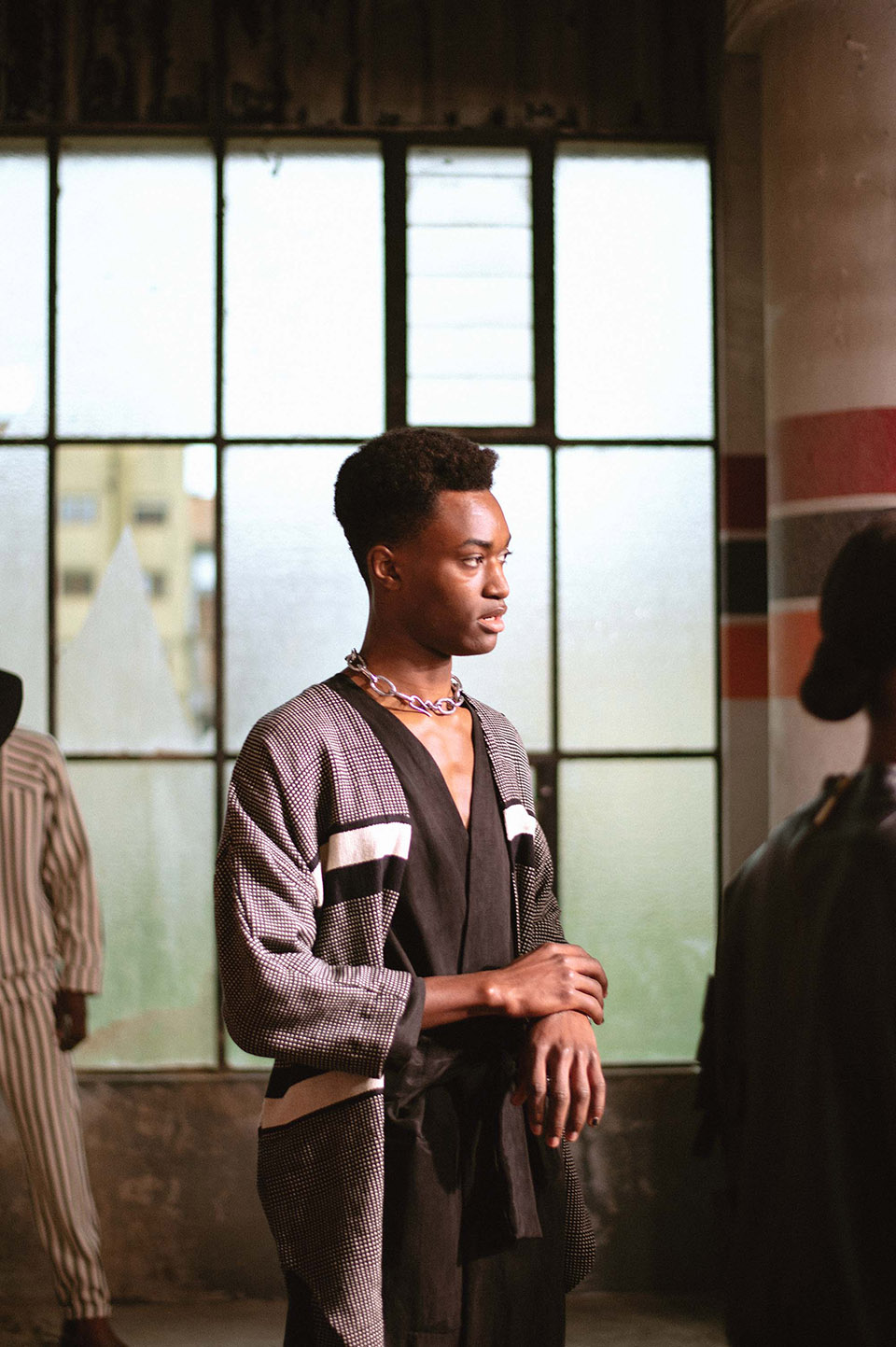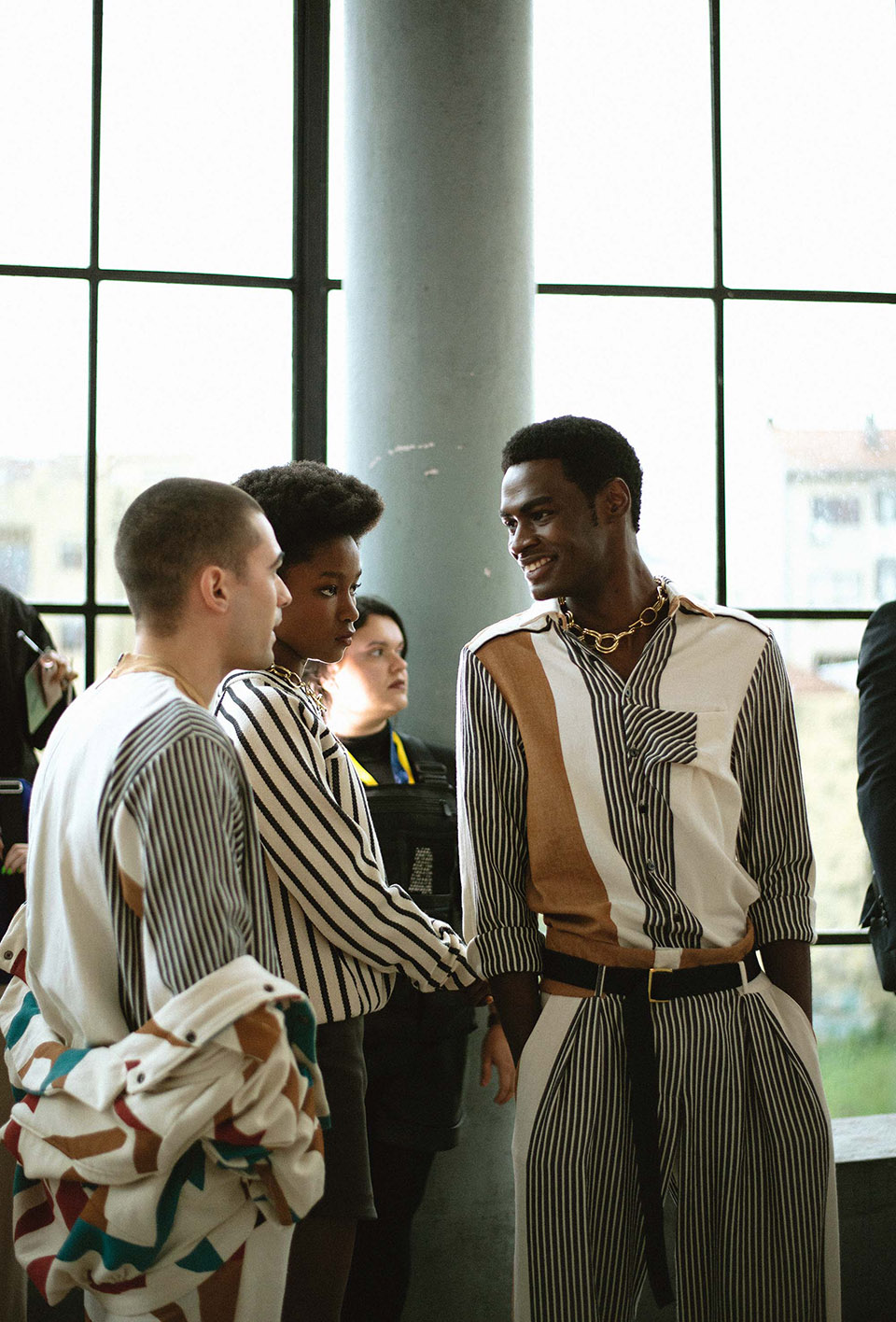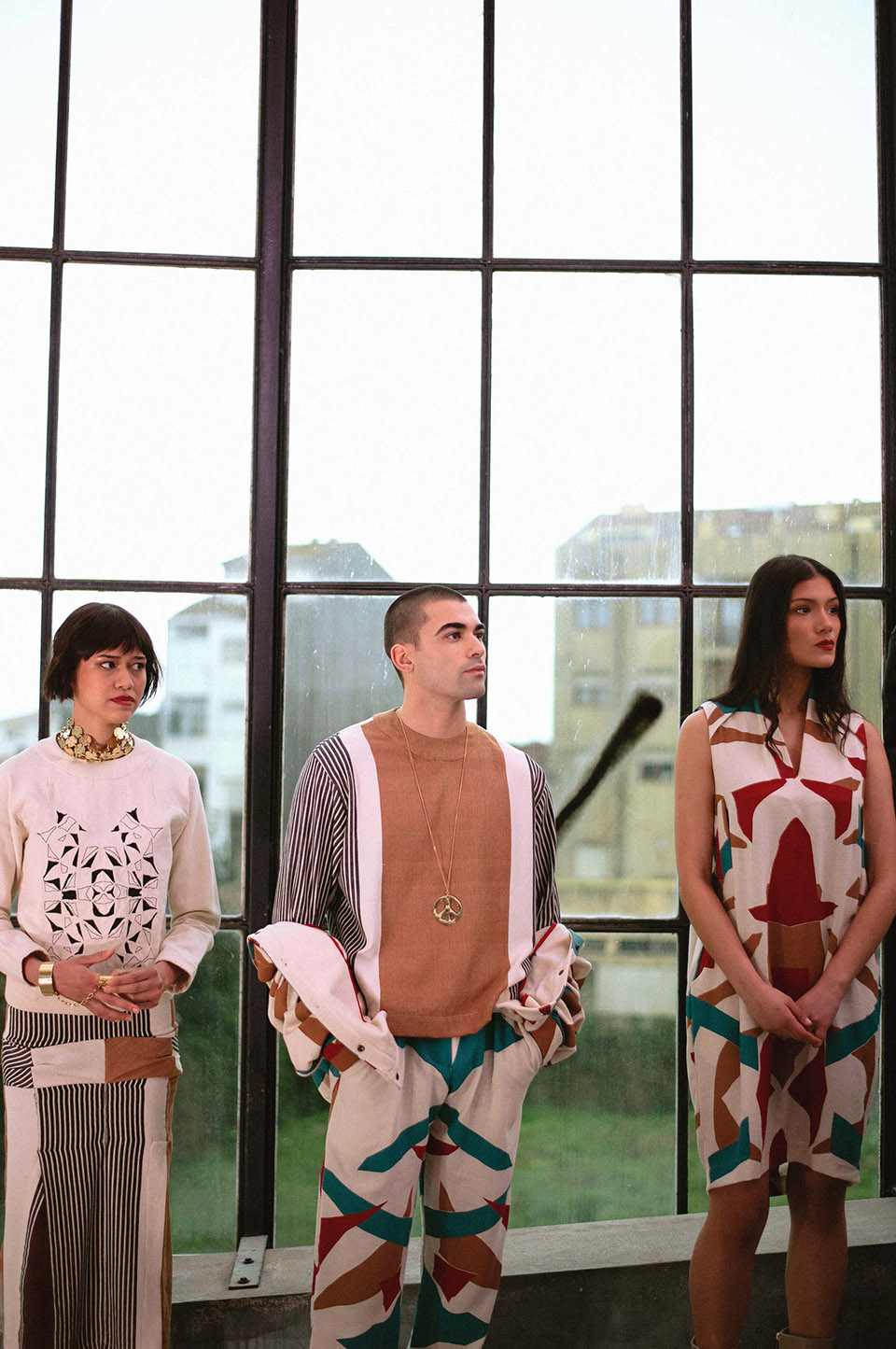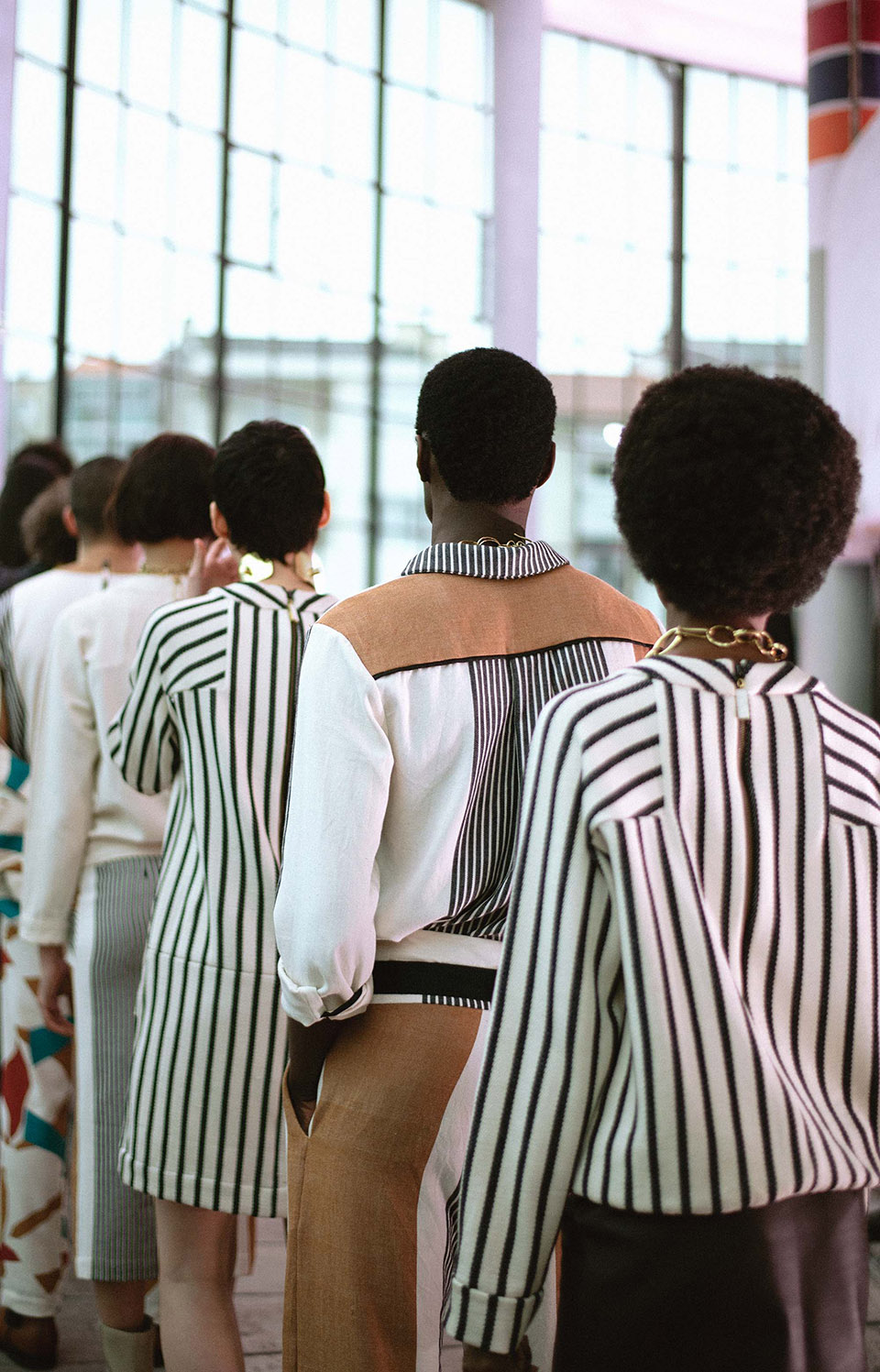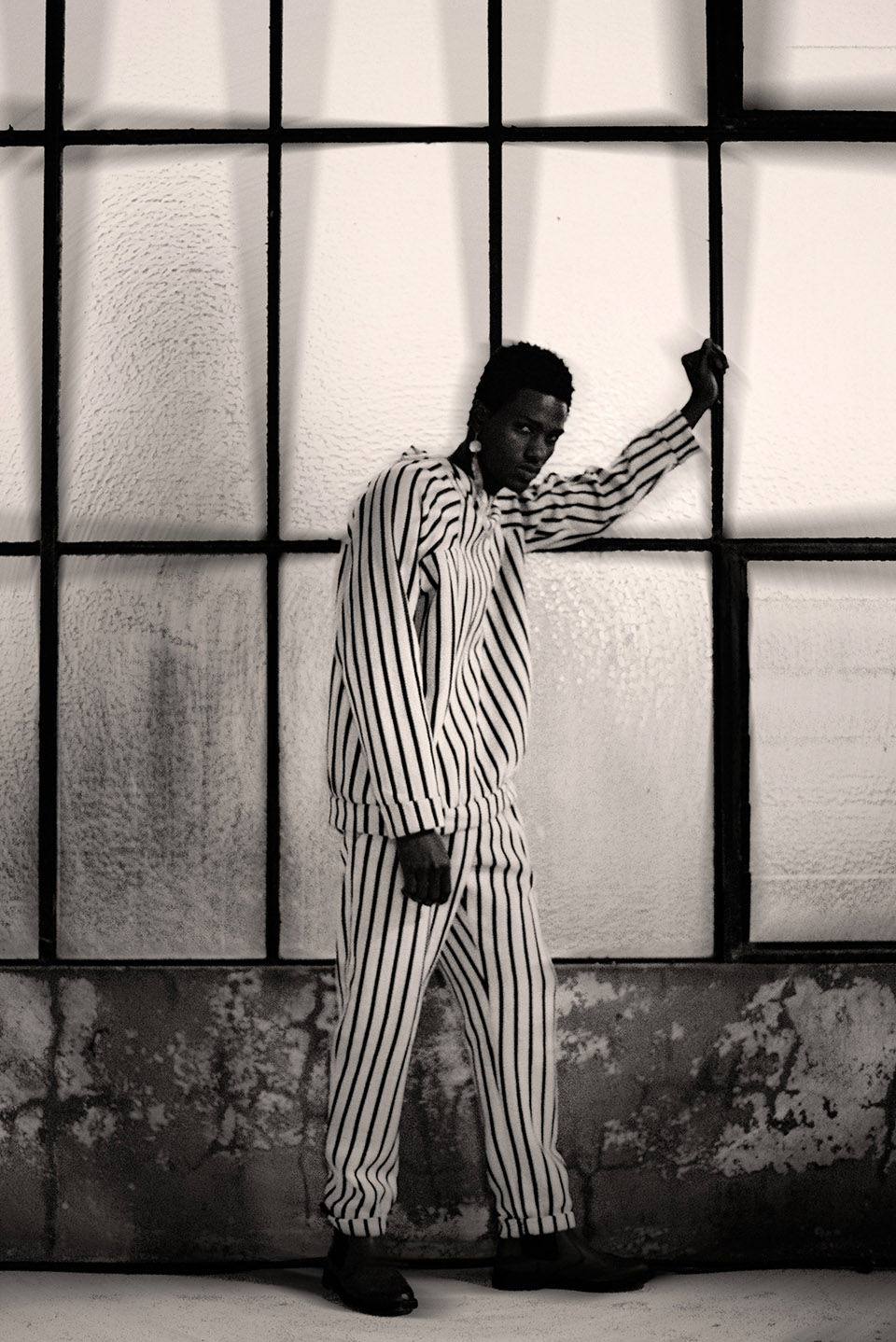Kenya has a lot to offer to the African fashion landscape. The emergence of gifted designers who have rooted their brands in sustainability while not compromising on quality and style has put the country at the forefront. Katush is one of the brands leading the way in ushering in a new era in Kenya’s textile industry.
Established in 2014 by founder Katungula Mwendwa in the country’s capital of Nairobi, the label is known for its sleek and contemporary designs for men and women. The talented designer grew up with a creatively inclined family as her father was an architect and bassist and her late grandmother had a store where she sold baskets and woven tapestries made by artisans.
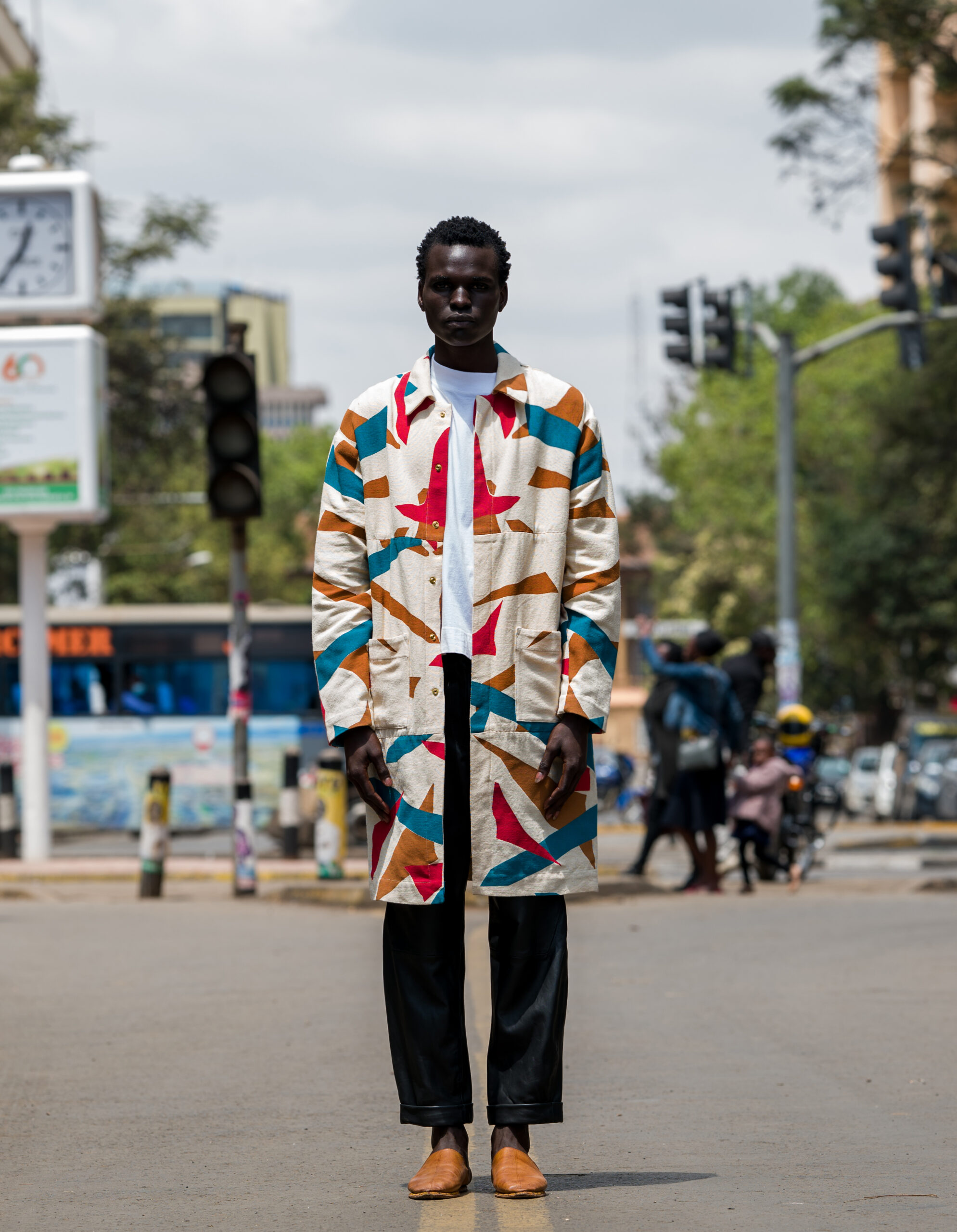
Her family background would be key in forging a sustainable brand that experiments with different techniques when creating woven textiles. Her work is inspired by different African cultures to create timeless pieces.
The brand’s new collection, Gwaride in Review debuted at Portugal Fashion Week. The line is a continuation of the last collection and it marks the first time that all the garments are 100 per cent made in Kenya. The cotton was hand-woven by local weavers with locally sourced leather and inspired by a local artist.
Bubblegum Club catches up with Mwendwa to talk about the business and creativity behind the Katush brand.
Lee Nxumalo: What is your earliest memory of falling in love with fashion?
Katungula Mwendwa: [It started] with opening my mother’s closet and finding one of her evening gowns, which was for her wedding evening party. It was a pale, pink, satin and lace dress and I tried it on but it didn’t fit me so I decided to chop it up and staple it to fit me and that was the beginning of it all.
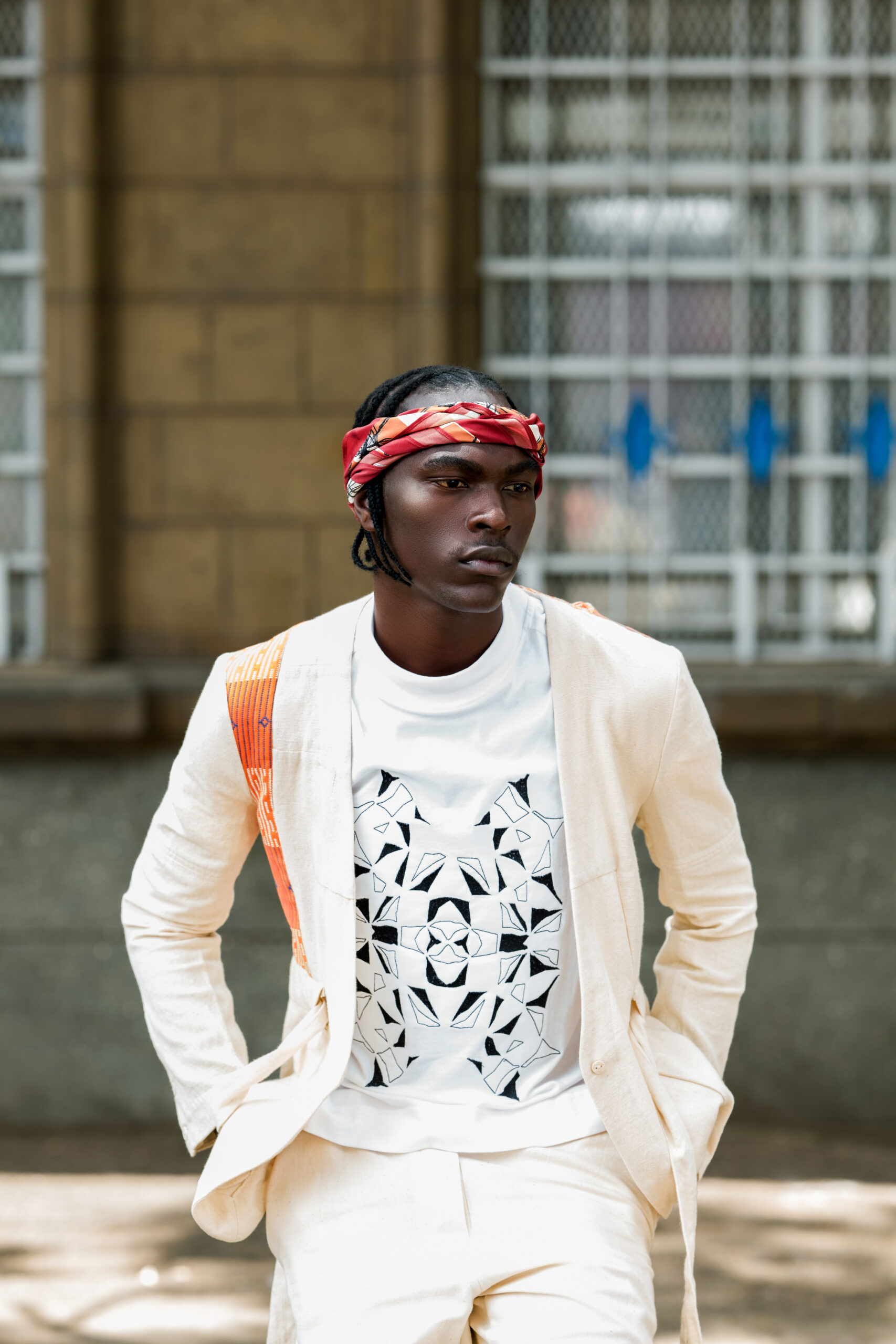
Lee Nxumalo: You studied design and fashion in the UK but now you’re based in Kenya. How does the cultural exposure of the two influence the way you work?
Katungula Mwendwa: In Kenya, we’ve always had a history or relationship with fashion that doesn’t follow seasons or trends. Everyone seems to have access to a personal tailor who can create items for them.
I quickly determined that I didn’t want to go the way of custom tailor-made goods, which is usually dictated by the customer at that particular point because the systems or the processes weren’t as clearly defined. Whereas [in the UK] working with a ready-to-wear brand, you can actually just buy stuff that’s off the rack or at least have something that has already been developed to a certain point.
So, that was different, and bringing that home was something that I feel, by the time I started, there weren’t that many brands doing that – I think we were very few but now you can see a lot of those coming up.
But there are ways of integrating the custom wear model and I am looking into how I can incorporate that into the ready-to-wear, easier-to-buy product without necessarily losing that professionalism and standardisation.
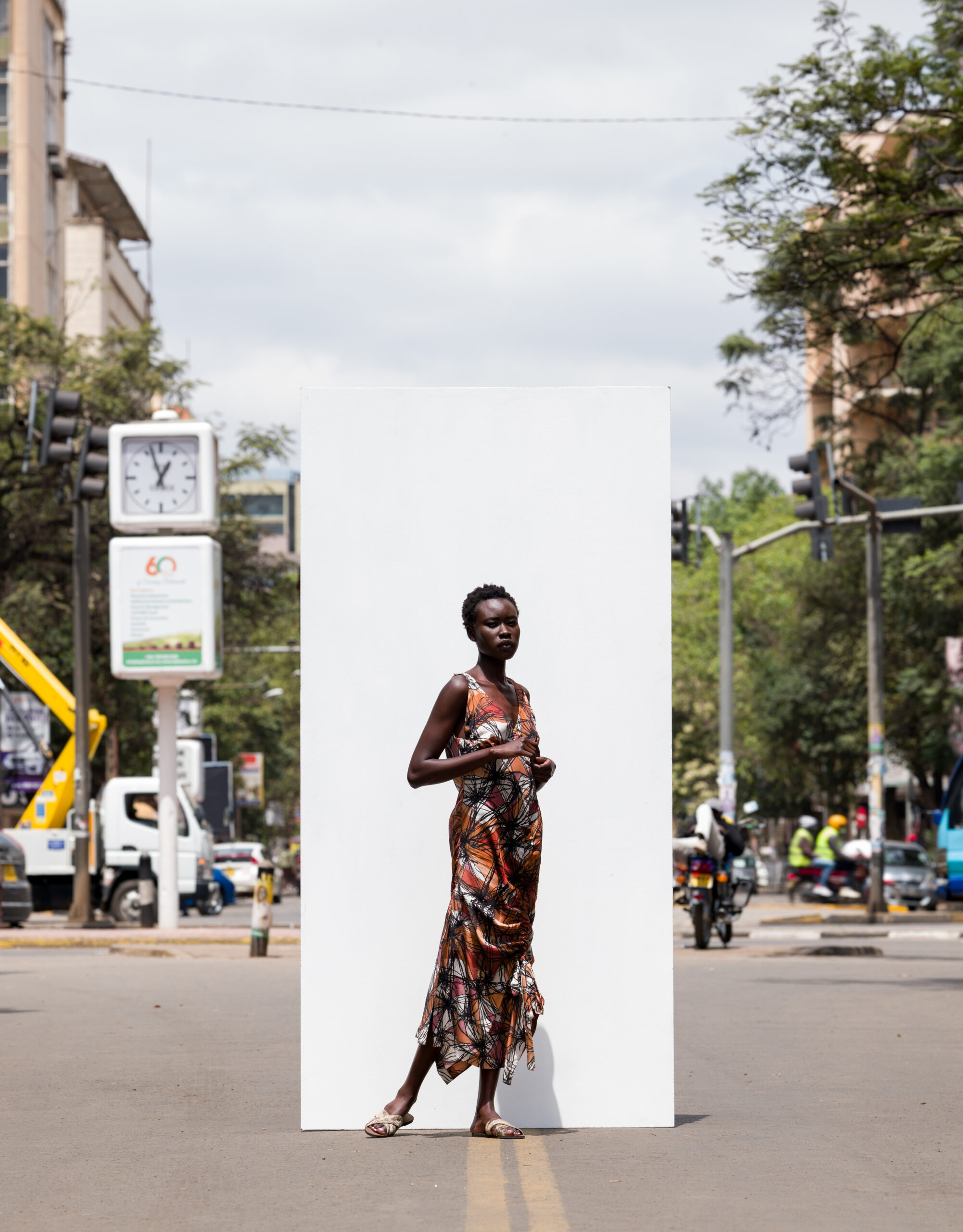
Lee Nxumalo: A cornerstone of the brand is that you work closely with artisans. How does that work for your business model and supply-demand chain?
Katungula Mwendwa: So in Kenya, we have an interesting problem. Even just importing materials adds a large percentage to the final cost of goods as import taxes are huge so we’re stuck on both ends. The cost of producing locally or bringing in fabrics, even if I’m bringing in my hand-woven fabrics from Burkina Faso or Ethiopia, it’s expensive.
Those are the challenges that we face, and I think it’s fine because I don’t think fashion is meant to be fast. I think we need to walk people through the reality of the challenges but it is valuable, particularly with the hand-woven and artisanal skill sets.
I don’t need to make 500 pieces to be able to cater to the market. I need to make beautiful essentials that I feel have more value and meaning in people’s lives. So in that case, if you come to me and you like an item then you might have to wait—are you okay with that? But it will hold more meaning for you.
As long as I’m able to find a way of making sure that my consumer doesn’t just feel it’s okay to just buy, buy, buy, and throw it away because there’s more value in this item and that’s sort of what I’m trying to narrate and share with my consumers.
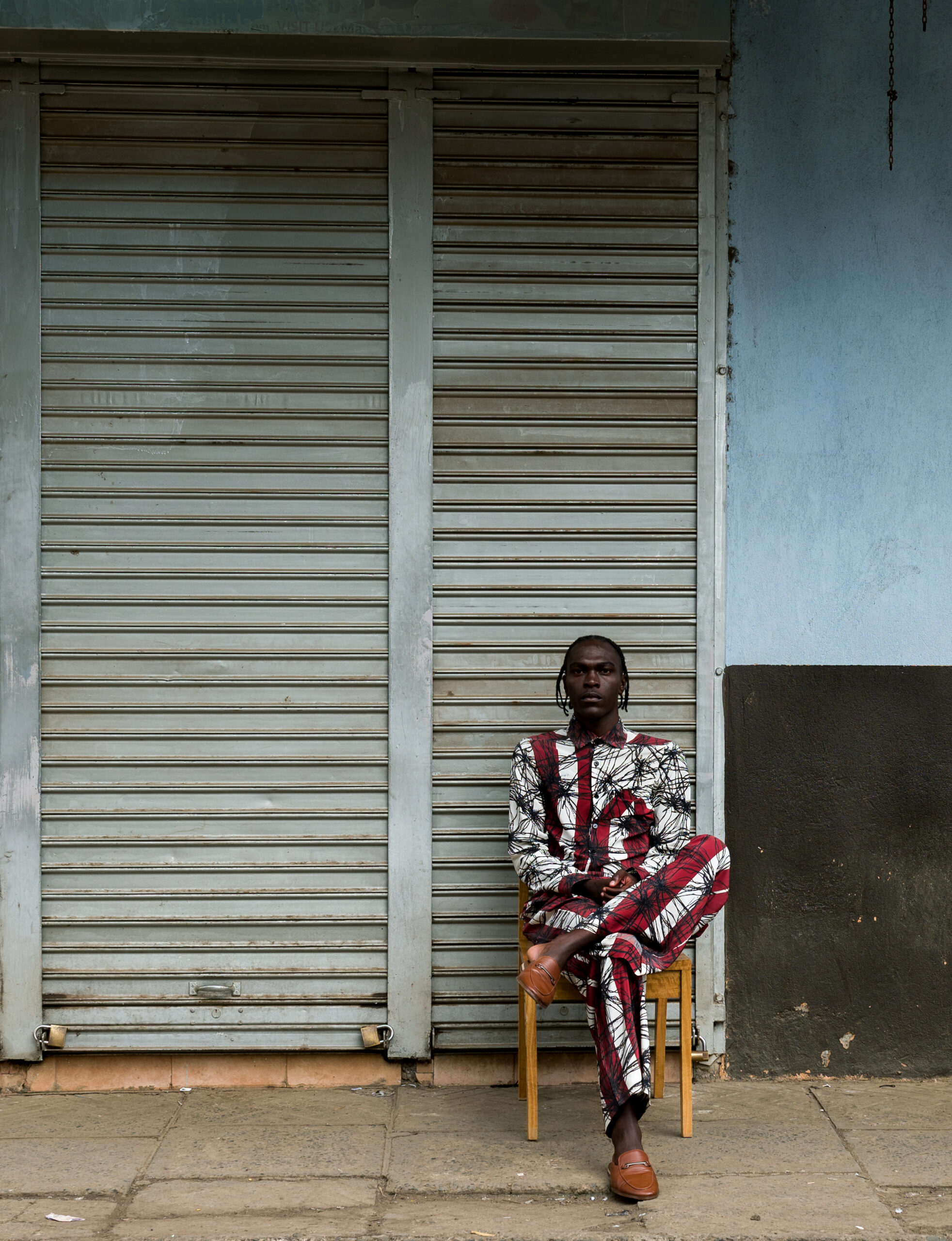
Lee Nxumalo: How do you then go about deciding how to create a new line?
Katungula Mwendwa: It’s very experimental. I can be sitting down and thinking about a shape or a technique or I’m pattern drafting and I discover something and think, ‘Oooh, that’s a great concept.’ There are also cultural practices of significance that I find fascinating and I think about how to reinterpret that. Sometimes there will be a process or a new way of thinking that I hadn’t thought of before and I will find ways of working them into my pieces.
Lee Nxumalo: Your brand is almost a decade old. What would you say has been essential for your brand consistency and success?
Katungula Mwendwa: I think it’s persistence. I can’t see myself doing anything else so for me, it’s always been how do I find ways of making this work? I’ve definitely changed and altered my business in small sort of iterations to make sure that it has longevity. I think that by being consistent, I have managed to sort of get to where I am now.
